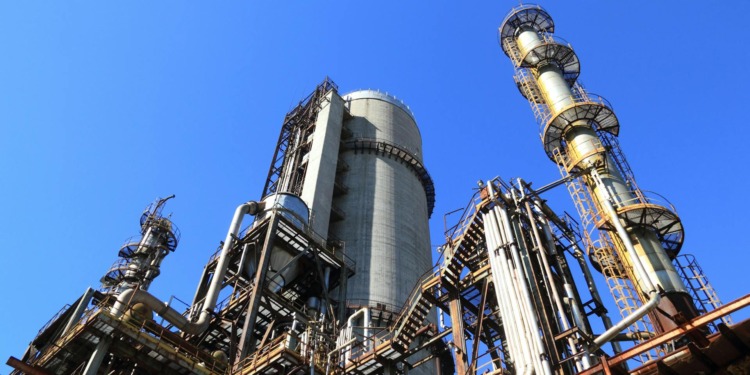According to the International Energy Agency (IEA), global energy-related CO2 emissions reached a record high of 37.4 billion tonnes (Gt) in 2023, with the “heavy industry,” encompassing sectors like cement, steel, chemicals, and fertilizer production, significantly contributing to these record high emissions.
Startup Molten Industries is developing a technology with the potential to address this challenge. Their process utilizes a high-temperature methane cracking process powered by renewable electricity to create clean hydrogen and graphite, two essential materials for various industrial processes.
This approach could significantly reduce the carbon footprint of the heavy industry sectors compared to traditional production methods which often rely on high-emission processes.
Meet Molten Industries
The startup was founded in 2021 in San Francisco by Caleb Boyd and Kevin Bush, both of whom hold PhDs in Material Science from Stanford University. Before founding Molten, the duo developed some of the world’s highest-efficiency perovskite-silicon tandem solar cells.
Molten Industries has come a long way since its beginning, starting out from a backyard garage, to now operating out of a 10,000 sq ft facility in Oakland, CA.
In 2022, Molten founders became Breakthrough Energy Fellows, which is a signature program of Breakthrough Energy, the climate organization founded by Bill Gates.
“Our second cohort of Breakthrough Energy Fellows represents a group of brilliant, global innovators and climate thought leaders, all sharing a deep-rooted commitment toward finding innovative solutions to solve the climate crisis. These incredible individuals are working every day to introduce novel technologies and disruptive approaches to a variety of industries that will have the power to reimagine our sustainable future,” said Ashley Grosh, Vice President at Breakthrough Energy Fellows.
In 2023, both founders were recognized in the Forbes 30 under 30 in Energy. And just last week, on June 20 2024, the startup raised $25million USD in a Series A round led by Breakthrough Energy Ventures (BEV), part of Breakthrough Energy’s network of investment vehicles.
“Establishing reliable sources of critical materials like graphite is essential to supporting the transition to EVs at scale,” said Carmichael Roberts from Breakthrough Energy Ventures. “Molten has developed a process that not only enables the domestic production of graphite, but also at a lower cost, and while creating a highly valuable hydrogen co-product.”
Related Articles: G20 Spent $693 Billion on Fossil Fuels in 2021 | Hurting People and Hurting the Planet: Fossil Fuel Subsidies | ExxonMobil Sues EU Over Unprecedented Windfall Tax | Energy Injustice: As Fossil Fuel Profits Double, Exxon Sues EU While BP Cuts Climate Targets
How Molten Industries Works
While the specific details of Molten Industries’ technology might be proprietary, we can see a general overview of their process. Here’s a breakdown of the key steps involved:
- Renewable Electricity: Molten Industries relies on renewable energy sources like solar or wind power to provide the electricity needed for the process.
- High-Temperature Methane Cracking: Methane gas is introduced into the system and undergoes a high-temperature cracking process. This process breaks down the methane molecules into hydrogen and solid carbon (graphite).
- Clean Hydrogen Production: The resulting hydrogen is separated and purified, creating clean hydrogen fuel with minimal greenhouse gas emissions.
- Graphite as a Byproduct: The high-temperature process also produces graphite as a valuable byproduct. This graphite can be used in various industrial applications, potentially displacing production methods with higher emissions.
The growing demand for electric vehicles (EVs) has spurred interest in reliable domestic sources of graphite, a critical material for EV batteries. This has made Molten Industries’ technology particularly attractive to major automakers facing international supply chain challenges.
“Our original focus was just to make the lowest-cost hydrogen with the most energy-efficient reactor possible,” said Kevin Bush, CEO. “We did figure out along the way that we could actually make battery-grade graphite rather than just an amorphous carbon soot.”
Looking ahead: decarbonized industries
Molten Industries’ technology presents a potential pathway towards decarbonization in several industrial sectors. Their clean hydrogen production process, if proven successful at scale, could significantly reduce greenhouse gas emissions.
Wider adoption of this technology hinges on several factors. Future research and pilot projects will be crucial in evaluating the long-term viability of the process. Scalability and potential environmental impacts also need careful assessment.
With their track record, experience, and support, there is no doubt that it will only be a matter of time before Molten Industries’ technology takes off at a large-enough scale.
Editor’s Note: The opinions expressed here by the authors are their own, not those of Impakter.com — In the Featured Photo: Google’s Deepmind Ecosystem. Featured Photo Credit: Pexels.








